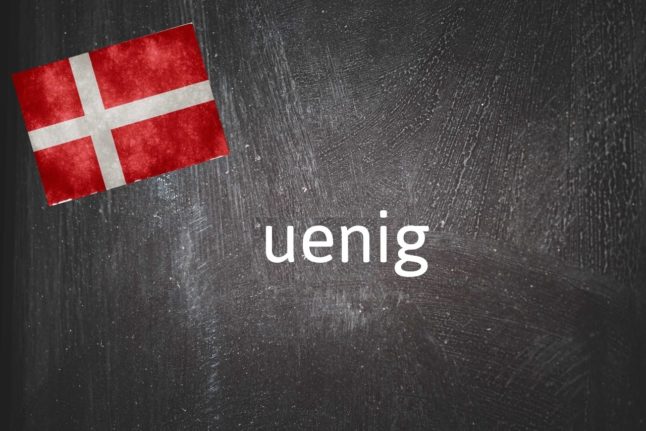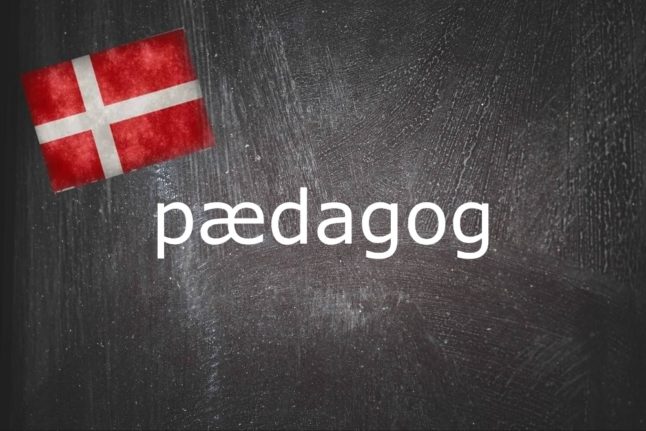What is uenig?
So what does it mean?
To be uenig is to disagree or be in disagreement over something (the antonym, enig, is used when you agree).
It’s not an exact like-for-like with the English ‘disagree’, however, because the Danish word is and adjective and the English word is a verb.
You can say “I disagree” in English but not in Danish where you’d have to reword as jeg er uenig, “I am in disagreement”. The noun for “disagreement” in Danish is an uenighed.
Why do I need to know uenig?
There’s a number of ways you can use uenig, meaning to be in disagreement, usually in sentences that sound a bit different in English.
Two people can be uenige, in a disagreement, but as the subject of a sentence the disagreement is an uenighed between two people.
There’s also an important distinction relating to prepositions. To be uenig med hende is to disagree with her, but to be uenig i noget is to disagree on something someone has said or claimed. Two or more people can also be uenige om (about) something.
Hopefully, the examples below will make this a bit clearer.
How do I use it?
Jeg er uenig med dig.
I disagree with you.
Han sagde, at bananer smager bedre end æbler. Det er jeg uenig i.
He said bananas taste better than apples. I disagree with that.
De to politiske partier gik fra mødet uden at have opnået en større enighed i forhold til spørgsmålet.
The two political parties left the meeting without achieving any greater agreement over the issue.



 Please whitelist us to continue reading.
Please whitelist us to continue reading.
Member comments